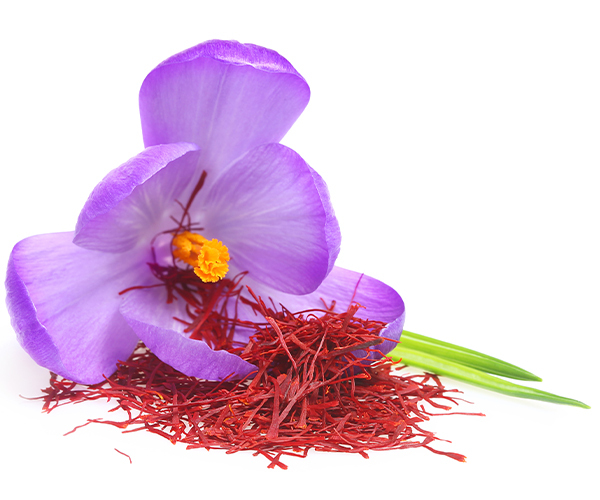
Effects of Crocine supplementation on nicotine dependence, anxiety, depression, and metabolic indices in smokers
Smoking is one of the leading causes of death worldwide, and its consumption is associated with various components of metabolic syndrome and psychiatric disorders. A study published in Adv Clin Exp Med has focused on the effects of crocine, an active component of saffron, in smokers.
What is Crocine?
Crocine is a carotenoid found in saffron, the spice derived from the dried stigmas of the Crocus sativus flower. It is responsible for the intense red color of saffron and possesses antioxidant and anti-inflammatory properties. Crocine has been shown to have various health benefits, such as improving mood, reducing anxiety and depression, and supporting metabolic health. Additionally, its potential to reduce nicotine dependence in smokers has been investigated. Its ability to improve oxidative balance in the body and its role in regulating various physiological processes make crocine a valuable component of saffron, with applications in medicine and nutrition.

Scientific study on Crocine
The research, which included 50 smokers randomly divided into two groups (crocine and placebo), sought to determine the impact of crocine supplementation on nicotine dependence, anxiety, depression, and metabolic indices. Over a period of three months, the intervention group received 30 mg of crocine per day, while the control group received a placebo.
Primary outcomes such as nicotine dependence, depression, and anxiety did not show a significant difference between the intervention groups (P > 0.05). However, significant reductions were observed in secondary outcomes, including fasting plasma glucose (FPG), insulin, and insulin resistance, as well as serum levels of high-sensitivity C-reactive protein (hs-CRP).
The findings suggest that supplementation with crocine, abundant in saffron, may have favorable effects on FPG, insulin, insulin resistance, and hs-CRP levels in smokers. In previous studies, crocine from saffron has also been shown to be effective in reducing depression symptoms in subjects with metabolic syndrome. At a dose of 30 mg per day for 8 weeks, crocine significantly reduced depression symptoms compared to the control group, regardless of its effect on serum pro-oxidant/antioxidant balance.
Additionally, in patients undergoing maintenance methadone treatment (MMT), supplementation with crocine for 8 weeks showed beneficial effects on mental health and improved metabolic profiles. Crocine, the main active compound in saffron, reduced fasting glucose, insulin, triglycerides, and total cholesterol levels, as well as high-sensitivity C-reactive protein and malondialdehyde, while increasing total antioxidant capacity.
Conclusion of the scientific study on the active principle of Saffron
In conclusion, crocine presents promising benefits in mental health and metabolic profiles, including reducing nicotine dependence, anxiety, and depression in smokers. These findings support its potential as an effective supplement for improving health in different populations, from smokers to those with metabolic syndrome or undergoing maintenance methadone treatment.
Discover our amazing organic saffron capsules, a rich source of crocine to enhance your well-being, at Anastore right now. Immerse yourself in the world of saffron and experience its unique benefits today.
